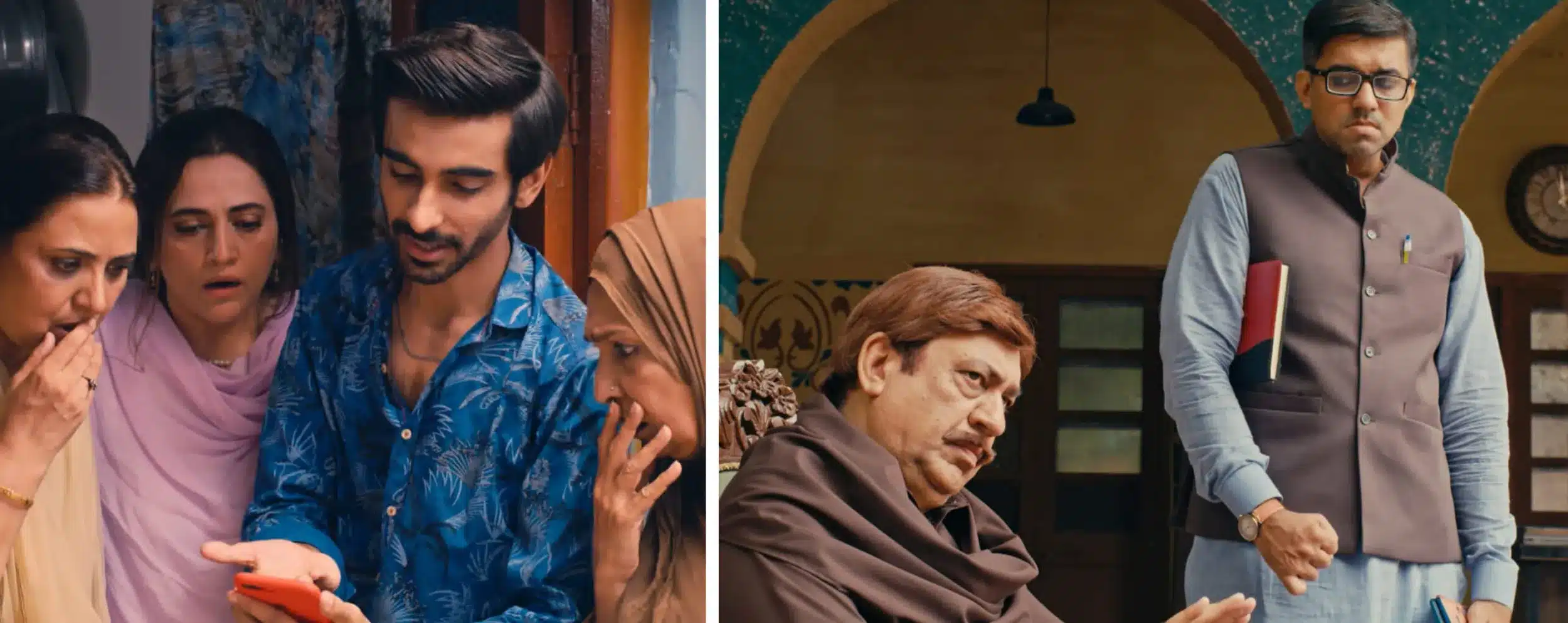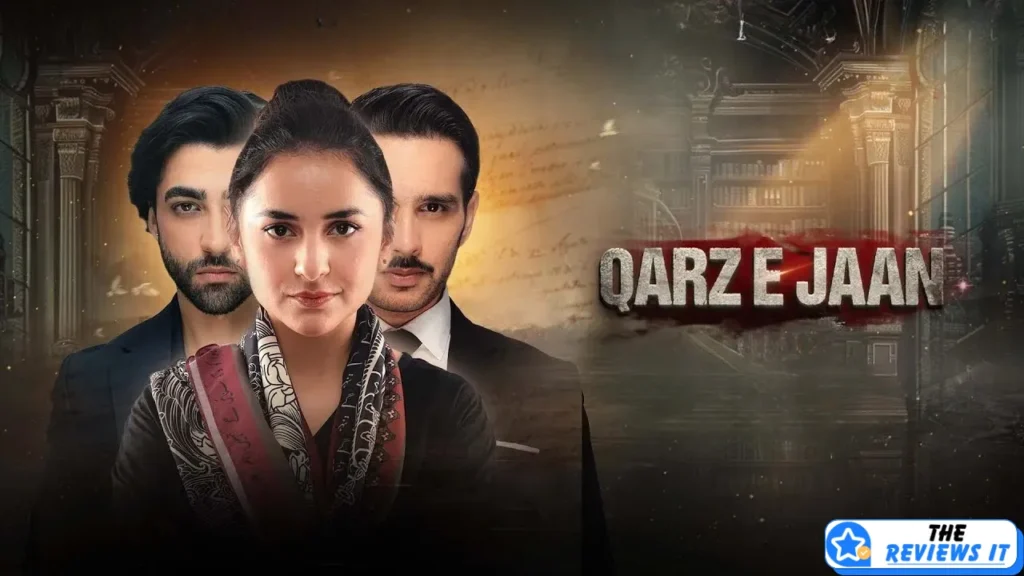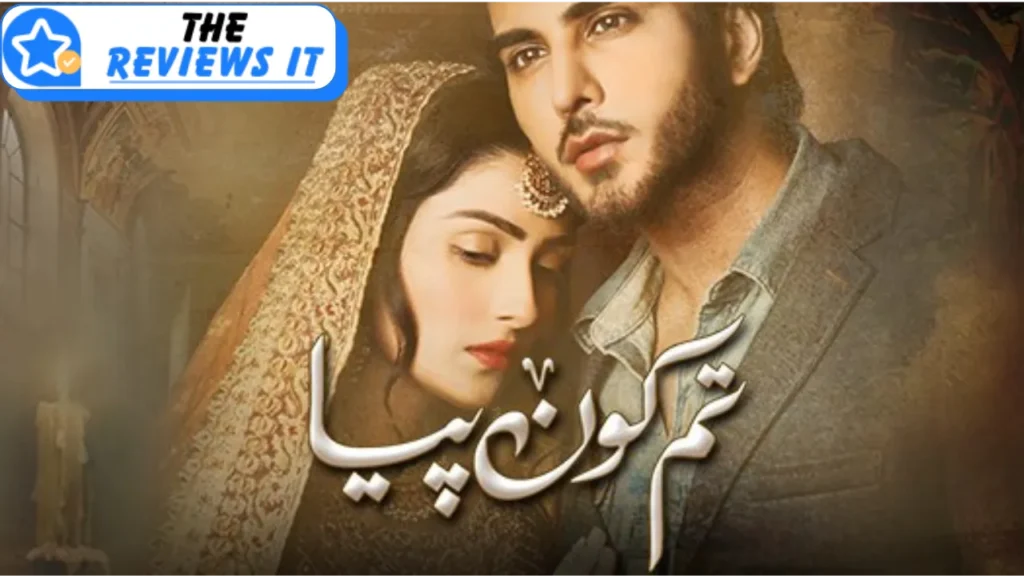Jeevan Nagar Drama Review reveals an engaging storyline that keeps audiences on the edge of their seats. Unlike typical gangster dramas, Jeevan Nagar layers its narrative with unexpected twists, including Babbar’s secretive disappearances, the unique character of Munni, and the clever plotting of his enemies. With a mix of suspense, action, and humor, Jeevan Nagar brings forward themes of loyalty, power, and community. If you’re looking for a drama that keeps you guessing, Jeevan Nagar is definitely worth the watch.
Jeevan Nagar dives into the life of Babbar Shah, a feared yet respected gangster ruling over Jeevan Nagar, a town caught between loyalty and lawlessness. With an intriguing blend of action and suspense, Jeevan Nagar reveals the complexities of its characters, particularly Babbar Shah, who commands both respect and fear. The drama follows his rule over Jeevan Nagar while highlighting the town’s evolving dynamics with the arrival of new faces and hidden agendas.

Plot Overview: A Glimpse into Jeevan Nagar’s Storyline
Jeevan Nagar presents a captivating narrative centered around Babbar Shah, the powerful gangster who rules over the titular neighborhood. Known for his intimidating presence and shrewd intelligence, Babbar is both feared and admired by the residents of Jeevan Nagar. The plot thickens with the arrival of Munni, a fearless fitness trainer who boldly challenges Babbar’s authority. Her determination to stand her ground brings a fresh dynamic to the community, as she questions Babbar’s decisions and actions.
As the story unfolds, viewers learn about Babbar’s mysterious disappearances during the late night hours, leaving even his closest allies puzzled. Meanwhile, Babbar’s enemies concoct a devious plan to undermine him by using a lookalike, Laali Guru, to seize control of Jeevan Nagar and its valuable properties. This plot twist adds layers of intrigue, as Babbar navigates treacherous waters filled with rival gangs and internal conflicts.
Key Themes and Central Message of the Drama
Jeevan Nagar explores several compelling themes, including loyalty, power, and the struggle between good and evil. The drama highlights the complexities of human relationships within a community shaped by fear and respect. Babbar Shah’s character embodies the duality of power; he is both a protector and a threat to the people he oversees.
The central message revolves around the idea of standing up for one’s beliefs, as seen through Munni’s fearless attitude and Babbar’s efforts to maintain control in the face of adversity. Additionally, the drama delves into the concept of identity and how appearances can be deceiving, especially with the introduction of Laali Guru. Ultimately, Jeevan Nagar encourages viewers to consider the lengths one will go to protect their home and the importance of community in overcoming challenges.

Main Characters and Cast Performance
Introduction to the Lead Characters and Supporting Cast
Jeevan Nagar features a diverse ensemble of characters, each contributing to the intricate tapestry of the storyline. At the center is Babbar Shah (Sohail Ahmed), the formidable gangster whose presence looms large over Jeevan Nagar. His character is both complex and compelling, showcasing the duality of power and vulnerability.
Opposite him is Munni (Rabia Butt), a fierce fitness trainer who fearlessly challenges Babbar’s authority. Her strong-willed nature introduces a refreshing perspective, shaking up the status quo in Jeevan Nagar. The supporting cast enhances the drama’s depth, with characters like Laali Guru, who is pivotal in the plot, and Raja Palaster (Iftikhar Iffi), a rival gangster seeking to exploit Babbar’s vulnerabilities. Other notable characters include Nida (Aamna Malik), Farida (Azra Aftab), and Barkat (Noor ul Hassan), each adding unique dimensions to the story.
Analysis of Key Performances, Particularly by Lead Actors
Sohail Ahmed delivers a remarkable performance as Babbar Shah, effortlessly embodying the character’s charisma and authority. His portrayal captures the complexities of being a gangster with a heart, as he navigates both the admiration and fear he commands. Sohail’s ability to balance intensity with moments of vulnerability makes Babbar a relatable anti-hero.
Rabia Butt shines as Munni, bringing a vibrant energy to the drama. Her portrayal of a strong, independent woman challenges traditional gender roles, resonating with viewers who appreciate her defiance against patriarchal norms. Rabia’s performance is both commanding and relatable, making her character a standout.
Supporting cast members also deliver commendable performances, with Iftikhar Iffi as Raja Palaster presenting a convincing antagonist who adds tension to the narrative. The chemistry among the characters, particularly between Babbar and Munni, elevates the drama, making their interactions compelling and believable.
Overall, the performances in Jeevan Nagar are a blend of intensity, humor, and emotional depth, contributing to a rich viewing experience. The lead actors, in particular, have succeeded in bringing their characters to life, making Jeevan Nagar a drama worth watching for its engaging storytelling and strong performances.

Cast Name and Characters
| Cast Name | Character Name |
|---|---|
| Sohail Ahmed | Babbar Shah |
| Rabia Butt | Munni |
| Aamna Malik | Nida |
| Azra Aftab | Farida |
| Iftikhar Iffi | Raja Palaster |
| Ismat Iqbal | Sultana |
| Kashif Mehmood | Chota Karobari |
| Noor ul Hassan | Barkat |
| Osman Khalid Butt | Hanif |
| Saqib Sumeer | Billa |
Themes and Social Messages in Jeevan Nagar
Jeevan Nagar intricately weaves several underlying themes, including love, resilience, community, and the complexities of family dynamics. The story showcases love in various forms, from romantic relationships to the deep bonds between neighbors who support one another despite their differences. The character of Babbar Shah embodies resilience, as he constantly navigates challenges posed by his enemies while striving to protect his community.
The theme of community is especially prominent, highlighting how collective strength can overcome adversity. As the residents unite against external threats, the drama emphasizes the importance of solidarity in the face of hardship. Additionally, the portrayal of Munni as a strong female character challenges traditional gender roles, showcasing empowerment and independence.
These themes resonate with the audience, encouraging viewers to reflect on their own lives and relationships. The blend of love, resilience, and community underscores the notion that even in difficult times, support from loved ones can lead to triumph over adversity.
Pacing and Story Development
The pacing of Jeevan Nagar plays a crucial role in maintaining viewer engagement. The story progresses steadily from episode to episode, introducing new conflicts while building upon existing ones. Each episode unravels layers of the characters’ lives and motivations, ensuring that the audience remains invested in their journeys.
Strengths in pacing are evident as the drama balances character development with plot advancement. The introduction of new characters, such as Munni and Laali Guru, adds fresh dynamics and keeps the narrative exciting. However, there may be moments where the pacing feels uneven, particularly during slower scenes that could benefit from more tension or action. The plot twists, while intriguing, occasionally leave viewers wanting more depth in their execution.

Strengths and Weaknesses: What Works and What Doesn’t
Pros:
- Strong Performances: The lead actors, particularly Sohail Ahmed and Rabia Butt, deliver compelling performances that bring depth to their characters.
- Engaging Storyline: The blend of action, suspense, and humor keeps the audience entertained and invested in the characters’ fates.
- Relevant Themes: The exploration of love, community, and resilience resonates with viewers, providing a relatable experience.
- Character Dynamics: The interactions between characters, especially the conflicts and alliances, create a rich narrative tapestry.
Cons:
- Pacing Issues: Some episodes may feel slower, which can disrupt the overall flow of the story.
- Occasional Predictability: Certain plot twists may come across as predictable, lacking the element of surprise that can enhance viewer engagement.
- Character Development: While lead characters are well-developed, some supporting characters could benefit from deeper backstories or motivations.
- Production Quality: Depending on the episode, variations in production quality, including set design and cinematography, may be noticeable.
Overall, Jeevan Nagar stands out for its engaging performances and meaningful themes, although it has areas for improvement, particularly in pacing and character development. The combination of strengths and weaknesses contributes to a viewing experience that invites both entertainment and reflection.
Audience Reception: What Viewers Are Saying
Jeevan Nagar has garnered a mixed but generally positive reception from both viewers and critics. Many fans have praised the engaging storyline and the strong performances by the lead actors, particularly Sohail Ahmed’s portrayal of Babbar Shah and Rabia Butt’s portrayal of Munni. Viewers appreciate the chemistry between the two characters, which adds an exciting dynamic to the drama.
Common praises include:
- Character Development: Audiences have enjoyed watching the evolution of characters, especially Babbar’s complexities and Munni’s fearless attitude.
- Relatable Themes: Many viewers resonate with the themes of community and resilience, finding them relevant in today’s societal context.
However, there are also criticisms, with some viewers noting:
- Pacing Issues: A few have pointed out that certain episodes drag on, affecting the overall engagement.
- Predictable Plot Twists: Some critics feel that certain story developments lack surprise, making parts of the drama feel formulaic.
Final Verdict: Is Jeevan Nagar Worth Watching?
Overall, Jeevan Nagar is definitely worth watching for its compelling narrative and well-acted characters. The drama’s blend of action, humor, and emotional depth makes it appealing to a broad audience. If you enjoy stories that explore themes of love, resilience, and community while also offering a thrilling experience, this drama should be on your watchlist.
For potential viewers, Jeevan Nagar provides a mix of drama and entertainment that keeps you invested from episode to episode. It’s a perfect pick for those looking to delve into a gripping story with relatable characters and thought-provoking themes.
Personal Take on Jeevan Nagar
In my view, Jeevan Nagar stands out for its rich storytelling and memorable performances. The portrayal of Babbar Shah as a multi-dimensional character adds depth, making him relatable despite his gangster persona. Munni’s character brings a refreshing take on female empowerment, and her interactions with Babbar are a highlight of the show.
One of my favorite scenes is when Munni confronts Babbar about his mysterious disappearances; it captures the essence of their dynamic perfectly—challenging yet respectful. The way she stands her ground against a powerful figure is inspiring and adds a layer of intrigue to their relationship.
Conclusion: Wrapping Up the Jeevan Nagar Drama Review
In conclusion, Jeevan Nagar is a drama that successfully intertwines action, humor, and heartfelt moments, making it a captivating watch. Its exploration of community, resilience, and the complexities of human relationships offers something for everyone. Whether you’re drawn in by the thrilling plot, the rich character dynamics, or the relatable themes, there’s much to appreciate.
For readers considering watching Jeevan Nagar, I highly recommend giving it a try. It’s a drama that not only entertains but also leaves you with food for thought about the power of community and the importance of standing up for one’s beliefs.











